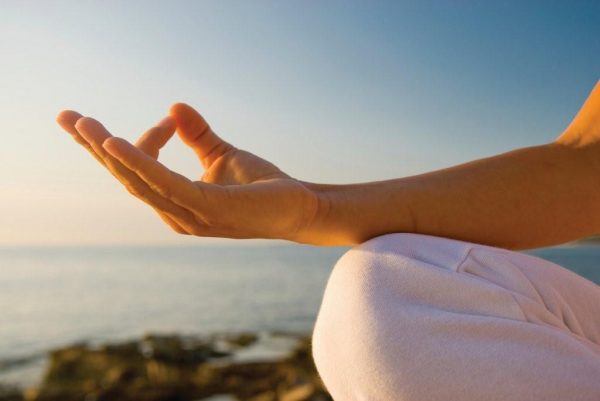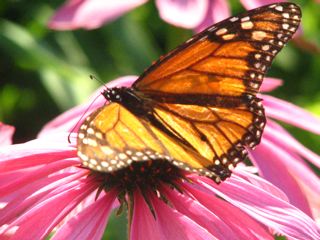Your Attention: Your Superpower

Your Attention: Your Superpower
Twenty-five years ago when I first started meditating, it all seemed very mysterious, very mystical, and very foreign to my family and friends. But today, meditation and mindfulness have enjoyed newfound popularity everywhere. They’ve gone mainstream. And for good reason.
For those of you who haven’t quite figured out why there’s so much hype about them, let me share what I know: meditation and mindfulness practices can help you gain control of your attention.
Attention is so subtle yet so powerful. When you can get really good at paying attention on purpose, you unleash a potent personal power. I call it your superpower. I wrote the book, The Power of Attention: Awaken to Love and its Unlimited Potential with Meditation, because I wanted to let you know that your attention is your superpower.
That’s because your attention has the power to change your life as well as the lives of others—depending on how and what you focus it on.
Unfortunately many people squander their attention without even recognizing its value and its power. They’re paying partial attention as they go through life. This means they are not truly engaged, but are kind of half-listening, or are easily distracted by the company of their electronics. You probably do it too, paying continuous yet partial attention while checking your texts. Or, talk on the phone while scanning your emails or searching the internet.
These mental habits make you miss out on what is actually happening in your life and caring for the people around you. Being distracted can make you miss out on your subtle emotions, your body’s language of sensations, and your own inner knowing, too.
This is why it is vital to reclaim control of your attention so you can truly savor your life including the people, passions, projects, and experiences that truly matter to you.
So let’s pay attention to your attention right now.
Turn your attention to your attention. What is that presence that is looking through your eyes? Listening through your ears? Where does it arise from? How can you control it? How can you become ridiculously in charge of it?
First, you’ll need to recognize the value of your attention.
Consider how it feels when a good friend pays attention to you. How do you feel when they really hear you, see you, and get you? Probably pretty good, right? It might even feel a little like love. That is because your natural attention, and theirs, is a currency of love. Attention in and of itself has a very powerful effect on that which you pay attention to.
Next, notice what distracts you from paying attention.
Starting right now, observe yourself paying attention, or hoping to! Notice what throws you off track from what really matters to you. Is it your to-do list? Your mobile phone? A video game? Your preoccupation with the past, or obsession with the future? Are you distracted by ongoing self-limiting thoughts or by concerns about other people’s opinions or actions? Maybe you’re distracted by a recurring fantasy or daydream.
It’s important to notice and become intimate with your attention, and your ability to pay it as well as the mental habits that distract you, so when you notice them, you can make a choice to return your attention to what matters. Nothing changes without awareness.
Now, you’ll need to take back control of your attention: this is where meditation and mindfulness come in.
These are called practices because it takes practice to create a new habit or learn a new skill, just as in practicing the piano, learning a new language, or practicing a sport. The practices of mindfulness and meditation will ultimately train you to be more skillful in disentangling your mind from its habits of distraction, spacing out, reacting, and being focused on some other time and place.
The term mindfulness refers to the deliberate practice of attending to the present moment and the activity you are engaged in without judgment or evaluation. In other words, it means to be aware of what you are doing while you are doing it. This requires a moment-to-moment awareness. Mindfulness helps you to be engaged in the actual experience of your life.
You can practice being mindful in everyday situations including while eating, driving, walking around, washing, or even folding laundry.
No matter what activity you are engaged in, you can be mindful of the sensations of standing, or of the movements of the body while you walk, or the feeling of warm soapy water on your hands as you do the dishes. Notice what you see, smell, taste, feel (emotionally and physically), and hear. You can also become aware of or the subtle sensations of breathing.
You can eat your next meal mindfully. Simply eat while you are eating. This means being completely engaged in the process of eating as you see, smell, taste, and feel the food in your mouth as you chew, and swallow. Listen to the sound of your food. Do this without your phone or the television or your computer.
When you notice you’ve become distracted, your job is to refocus on the actual experience you are having. Don’t judge your ability to pay attention. Be kind to yourself. Don’t even judge what you are paying attention to! Instead practice anchoring your attention to the most important moment: now. This moment, right now, is when your life is taking place. With mindful living practice, you’ll eventually string together mindful moments and ultimately live a more mindful life, one in which you are more present, focused, and self-aware.
Meditation can help you do this too.
The word meditation often refers to a myriad of both ancient and modern practices that involve paying gentle attention to a particular focus, whether something visual, auditory, or kinesthetic. Meditation also refers to a psychophysiological state, one in which your nervous system is settled down allowing for impurities and stress to be released. During this state, you dive into quieter and quieter levels of awareness.
Every meditation practice begins with mindfulness.
You start by being mindful of where you are, and what and how you feel. The breath or the body sensations are the perfect anchors for your attention because they are always in the here and now. For instance you can sit relatively still with your eyes closed and attend to the activity of breathing. What does it feel like, sound like, what about movement and stillness? Whenever you notice your attention drifting away from what you are focused on, you come back to the focus. Notice the mind’s commentary and refocus back to the meditation. It’s almost as if you say, “Thank you for sharing,” and move back to the breath, without judgment.
This continual refocusing interrupts your brain’s reactivity and domination of your compulsive thinking patterns. Eventually, your thoughts will be less disruptive and you’ll be less distracted from what is actually going on both in and out of meditation. These practices will help you to reclaim your attention as:
You become more focused on the present moment so you can:
- Savor each moment of your life by engaging your attention on what you are doing while you’re doing it;
- Be more mindful in your communications whether with your family members, loved ones, and those you work with;
- Be alert to opportunities, creative responses, and inspiration—all which are only available if you are paying attention.
You become more aware of your interior so you can respond thoughtfully to:
- Your thought patterns, reactions, and emotions;
- Your gut feelings and inner knowing;
- You can make choices based on your true values and commitments rather than out of mental habits and reactivity.
You learn to sustain your focus on one thing at a time so you can:
- Attend to what is truly important to you without distraction;
- Finish projects more easily and with more accuracy;
- Be present to the people that are in front of you (without your devices interrupting) so you can create true relationships.
With mindful living practice, you’ll eventually string together mindful moments and ultimately live a more mindful life, one in which you are more present, focused, and self-aware. Ultimately, you’ll become ridiculously in charge of your attention, what and how you “pay” it. Adopting mindfulness and meditation will improve the quality or your attention so you can fully experience and enjoy your already beautiful life.
Sarah McLean
Sarah McLean is an acclaimed teacher and thought leader who is determined to create more peace on this planet by helping people wake up to the wonder and beauty of their lives and the world around them through the practices of meditation and mindfulness. She inspires audiences everywhere blending the spirit of Zen wisdom with Vedic knowledge and self-inquiry. She helps demystify meditation and makes it accessible to anyone. It was over 30 years ago when she began her daily meditation practice, and moved in to a Transcendental Meditation community. There, she received advanced training in meditation and studied Ayurveda. Since 1993, when she became the education director for Deepak Chopra’s Center for Mind Body Health, she's been teaching contemplative practices and mind/body health. In 1997, she went to India to live in a traditional ashram in India, When she returned to the States, spent two years as a resident trainee in a Zen Buddhist monastery. She fell in love with Self-inquiry and served as the director of Byron Katie's School for the Work. In 2012, she founded the McLean Meditation Institute, home of the Meditation Teacher Academy which certifies meditation and mindfulness teachers through its 300-hour teacher training program. Her bestseller, Soul-Centered: Transform Your Life in 8 Weeks with Meditation, and her most recent book, The Power of Attention: Awakening to Love have received rave reviews. She now lives in Santa Barbara, California where she trains meditation teachers and offers online classes and lives a life she loves.






